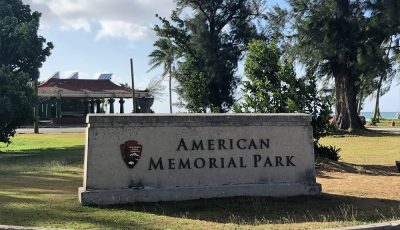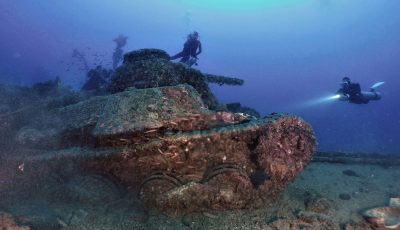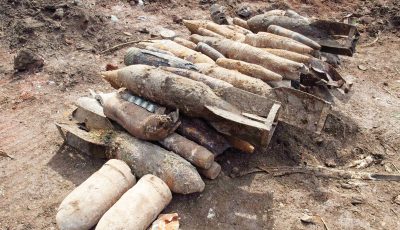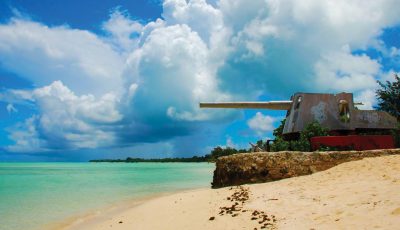Our reefs and the epiphany
I’m fortunate to know several people in positions of responsibility within our government who are equipped for their job, passionate, and able to learn. They are not the “old style” person who’s willing to “do their best” despite the job requiring far more that “their best.”
Doing your best 200 years ago was not a problem. As the man left his family in the morning to gather food for them, his wife would wish him well and he would say, “I’ll do my best!” And she would roll her eyes up, shake her head oh so slightly, and smile. If he had a problem with his aim in using the sling, at worst he might hit his neighbor and cause a conflict. Or he might mistake his neighbor’s calf as a fish, spear it, and things would become tense. But life is more complicated now and doing your best then falling short can have severe consequences.
Let’s call my friend “Bob.” I had the chance to visit Bob in his office recently and was pleasantly surprised to be able to chat for some time (usually our conversations are rather short as we’re both busy). At one point, I mentioned in passing that “our reefs are almost dead.” Bob got pretty agitated, “No there not. In fact, they might have even improved since I started spearfishing.” And so the conversation continued. Bob explained that his mother is the one who motivated him as a teenager to begin spearfishing. This would be his introduction to our reefs, an introduction that doesn’t occur when you’re just a lad playing in the water with friends. Bob said that the reefs were fine then and may have even improved since then, as he saw things.
I went home that night bothered by the conversation. How could there be such a distinct difference in point of view of our reefs, especially if they were almost dead and a lot was at stake? As I lay awake in bed, reviewing the conversation, I built a timeline in my mind: Before WWII, the reefs were damaged some by the outfall from sugar cane processing. But the damage was likely only localized. WWII saw major devastation to the reefs. It’s hard to drive a tank over a reef without breaking a few coral heads (yes, a gross understatement). The next devastating event (and do not assume recovery in the meantime) was the work of the Crown of Thorns Starfish in 1969. A father-son scientific team came and assessed our reefs only to find that LauLau Bay had been spared (the starfish couldn’t get past the rough water at each end of the bay) while the rest of the reefs had been destroyed by this outbreak.
The son and his brother, now the world’s leading reef scientist with more time in the water and more time at the widest variety of reefs around the world, reassessed the reefs in 1999—30 years later. Between these two dates, Bob started spearfishing in the early 1980s. These two brothers and scientists found very little improvement from the surveys done 30 years earlier. They did find one, small Staghorn Coral just off the beach in Tanapag but otherwise, the reefs were a mess.
Here it is, about 17 years later, and there has still been little improvement and, in fact, more causes have been identified that have caused further reef deterioration such as coral bleaching.
Then came the epiphany! There is no one alive today who can recall with any degree of clarity and accuracy the condition of our undisturbed reefs prior to WWII! Everyone who is living here today has as a benchmark, reefs that were not healthy at the time nor are healthy now. Bob learned to spearfish in reefs that were not healthy. But to him, they were the way they were supposed to be. Their condition then became his benchmark. This is why we need to bring someone in from the outside who has extensive experience in recognizing healthy reefs who can use that background as a benchmark in determining the current condition of the reefs of our southern islands and make recommendations as to how we can see marked improvement. His name is Thomas J. Goreau, PhD. We need to bring him and his little team in to help us get on track. We do not need to spend millions of dollars every year to protect the “almost dead.”
We are supposed to be the caretakers of what’s been entrusted to us. These island resources are not things for us to trifle over because of government inefficiencies or politics. We’re loosing time. We need to act now. For those entrusted with the direct responsibility to care for our reefs, please get in touch with Tom (37 Pleasant Street, Cambridge, MA 02139 www.globalcoral.org Skype: tomgoreau Tel: (1) 617-864-4226)
Gary A. Liddle
Capital Hill



























